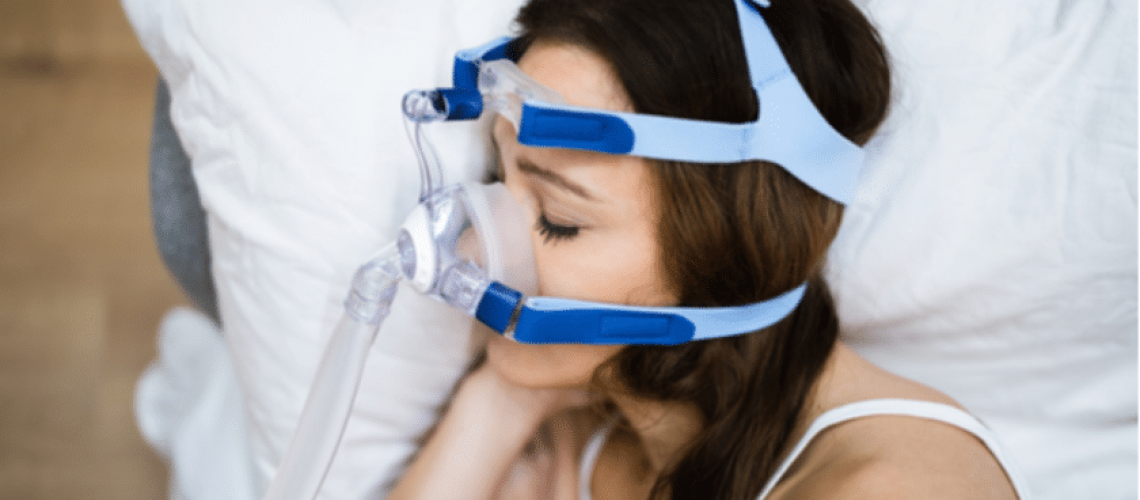Do you ever wake up feeling exhausted despite getting a full night’s sleep? Or maybe your partner has complained about your loud snoring or pauses in breathing during the night? If so, you may be one of the millions of people worldwide who suffer from sleep apnea. This common yet potentially dangerous condition can have serious consequences for your health if left untreated. In this blog post, we’ll explore what sleep apnea is, its types, how it damages your health, and ways to prevent and treat it. So grab a cup of coffee and let’s dive into the world of sleep apnea!
What is sleep apnea?
Sleep apnea is a common sleep disorder that causes you to stop breathing repeatedly throughout the night. This condition occurs when the airway becomes blocked, usually due to relaxed muscles or excess tissue in the throat or at the back of your mouth.
There are two main types of sleep apnea:
Obstructive sleep apnea (OSA) and central sleep apnea (CSA). OSA is more common and occurs when your throat muscles relax too much during sleep, narrowing or closing off your airway. CSA, on the other hand, happens when your brain fails to send proper signals to your breathing muscles.
One of the most noticeable symptoms of both types of sleep apnea is loud snoring followed by gasping for air or pauses in breathing during sleep. Other symptoms include daytime fatigue, morning headaches, irritability, and difficulty concentrating.
Sleep apnea can affect anyone regardless of age or gender but certain factors may increase your risk including obesity, smoking, and alcohol use.
If left untreated, this condition can lead to serious health problems such as high blood pressure, heart disease, and stroke. Seeking medical attention is important if you suspect you have any form of sleep apnea.
Types of sleep apnea
Sleep apnea is a common sleep disorder that affects millions of people worldwide. There are three types of sleep apnea, each with unique characteristics and symptoms.
Obstructive Sleep Apnea (OSA) is the most common type of sleep apnea. It occurs when your throat muscles relax during sleep, causing your airway to narrow or close completely. This can cause you to snore loudly, wake up gasping for air, and experience daytime fatigue.
Central Sleep Apnea (CSA) is less common than OSA but equally as serious. CSA occurs when your brain fails to send proper signals to the muscles that control breathing during sleep. This results in shallow or paused breathing while you’re asleep.
Mixed Sleep Apnea is a combination of both obstructive and central sleep apneas. This means that you may have both an obstruction in your airway as well as a brain signal issue causing interruptions in breathing while sleeping.
It’s important to note that all forms of sleep apnea can have serious consequences on one’s health if left untreated. That’s why it’s essential to seek medical attention if you suspect you might be suffering from any form of this condition!
How does sleep apnea damage your health?
Sleep apnea is a medical condition that affects many people worldwide. It can cause numerous health issues, including cardiovascular problems, high blood pressure, fatigue, and even depression. The most common type of sleep apnea is obstructive sleep apnea (OSA), which occurs when the muscles in your throat relax during sleep and block your airway.
When you have OSA, your breathing repeatedly stops and starts throughout the night. This puts a significant amount of stress on your body because it does not get enough oxygen while you are asleep. As a result, it raises blood pressure levels and increases the risk of heart disease.
Another way that sleep apnea damages health is by affecting mood and mental well-being. Sleep deprivation due to frequent awakenings can lead to irritability, anxiety, or depression.
In addition to these serious complications, untreated OSA may also increase the risk of stroke due to its detrimental effect on arterial walls. People with severe OSA have been found more likely to suffer from motor vehicle accidents as they tend to doze off at inappropriate times during daytime hours – this only adds another layer of danger to one’s overall well-being.
If left untreated for an extended period of time Sleep Apnea could seriously affect someone’s quality of life by negatively impacting their daily routine activities along with long-term health consequences related mainly but not limited to Cardiovascular Disease & Mental Health Issues that should be addressed as soon possible through proper diagnosis & treatment under professional guidance
Prevention of sleep apnea
Preventing sleep apnea is crucial to avoid the serious health consequences that can arise from this condition. Here are some tips for reducing your risk of developing sleep apnea.
Maintain a Healthy Weight: Being overweight or obese increases the likelihood of developing sleep apnea. Losing weight and maintaining a healthy weight through regular exercise and a balanced diet can reduce your risk of developing this condition.
Avoid Alcohol and Sedatives: Alcohol and sedatives relax the muscles in the throat, which can lead to snoring and obstructed breathing. Avoiding these substances before bedtime can help reduce your risk of developing sleep apnea.
Quit Smoking: Smoking irritates the airways, causing inflammation and narrowing that can increase the severity of sleep apnea symptoms. Quitting smoking is an important step toward preventing both sleep apnea as well as other respiratory illnesses.
Sleep on Your Side: Sleeping on your back increases the likelihood that your tongue will fall backward into your throat, causing airway obstruction. Sleeping on your side may prevent such obstructions from occurring, thereby reducing incidents of interrupted breathing during nighttime hours.
Consider Treatment for Allergies or Nasal Congestion: Allergies or nasal congestion may cause breathing difficulties at night leading to Obstructive Sleep Apnoea (OSA). Taking steps to manage allergies or nasal congestion through medication or allergy treatments may help alleviate OSA symptoms.
Treatment for sleep apnea
If you suspect that you have sleep apnea, it is essential to seek medical attention. Your doctor may recommend lifestyle changes or the use of a continuous positive airway pressure (CPAP) machine. CPAP therapy involves wearing a mask over your nose and mouth while sleeping, which delivers constant air pressure to keep your airways open.
Other treatment options include oral appliances, surgery, and positional therapy. Oral appliances are custom-made devices that help keep the throat open during sleep by repositioning the jaw or tongue. Surgery is usually recommended in severe cases when other treatments fail to provide relief. Positional therapy involves changing your sleeping position to prevent snoring and improve breathing.
Sleep apnea can be a serious condition if left untreated. It can lead to several health problems such as high blood pressure, heart disease, stroke, and diabetes. However, with proper diagnosis and treatment from a qualified healthcare professional, many people with sleep apnea can manage their symptoms effectively and enjoy restful nights of quality sleep once again. So if you or someone you know suffers from symptoms of sleep apnea like loud snoring or daytime fatigue don’t wait any longer; take action today!

